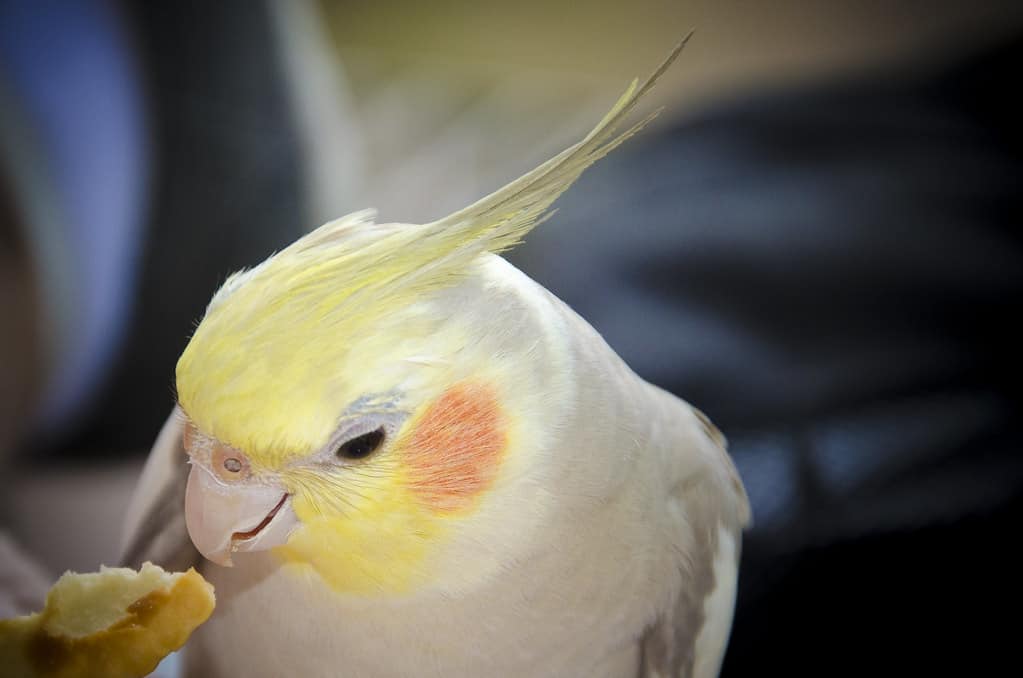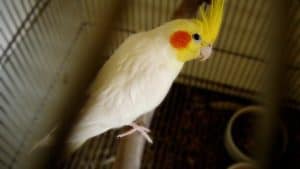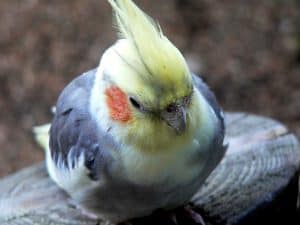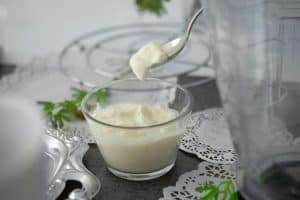As a pet owner, you may often wonder if your cockatiel can eat certain foods. One common question is, can cockatiels eat blueberries? The answer is yes, cockatiels can eat blueberries. In fact, feeding your cockatiel a variety of fresh fruits and vegetables is an essential part of maintaining a healthy and balanced diet. In this article, we will explore the benefits of feeding blueberries to your cockatiel, as well as precautions and tips for incorporating this fruit into your bird’s diet.
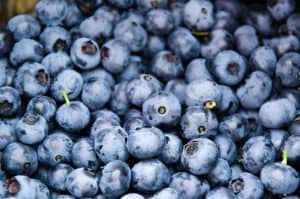
The Health Benefits of Blueberries for Cockatiels
Cockatiels eat blueberries because they provide a range of nutritional benefits. Blueberries are rich in vitamin C, antioxidants, and fiber. Vitamin C is particularly important for pet birds, as it helps to strengthen their immune system and maintain healthy skin and feathers. Antioxidants help protect cells from damage caused by free radicals, while fiber aids in digestion.
Are Blueberry Seeds Safe for Cockatiels?
One concern that pet owners may have when feeding their birds fruit is the presence of fruit seeds. Many fruit seeds, such as those found in apples, contain cyanide which can be toxic to pet birds. However, blueberry seeds are safe for cockatiels to consume. Unlike many other fruit seeds, blueberry seeds do not contain any harmful substances and are small enough for your bird to eat without causing any health issues.
Including Blueberries in a Cockatiel’s Healthy Diet
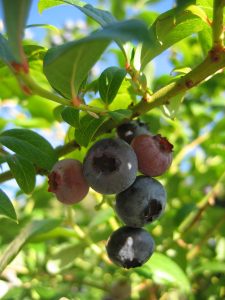
Yes, blueberries can be a healthy addition to a cockatiel’s diet when offered in moderation. Blueberries are rich in antioxidants, vitamins, and minerals, making them a nutritious treat for your cockatiel.
When feeding blueberries to your cockatiel, it’s important to follow these guidelines:
- Introduce gradually: Start by offering a small piece of blueberry to your cockatiel and observe how they respond to it. Some birds may take time to accept new foods, so be patient.
- Fresh and clean: Wash the blueberries thoroughly before offering them to your cockatiel to remove any pesticides or contaminants. Organic blueberries are a good choice if available.
- Serve in moderation: Blueberries should be offered as a treat and not as a primary part of your cockatiel’s diet. They contain natural sugars, so overfeeding can lead to weight gain. Limit the portion size and frequency of blueberry treats.
- Small pieces: Cut blueberries into small, bite-sized pieces to make it easier for your cockatiel to eat. This will also help prevent choking hazards.
- Variety is key: Blueberries should be part of a balanced diet that includes a variety of foods. Pelleted food specifically formulated for cockatiels should make up the majority of their diet, supplemented with fresh vegetables, leafy greens, and occasional fruit treats like blueberries.
How to Safely Feed Blueberries to Your Cockatiel?
Before you feed your cockatiel with blueberries, it is important to properly prepare the fruit. Fresh blueberries should be washed thoroughly to remove any pesticides or dirt. You can then mash or chop the berries into smaller pieces, making them easier for your bird to eat.
While eating blueberries can be a healthy snack for your cockatiel, it is important not to overfeed cockatiels blueberries. Too many blueberries can lead to an unbalanced diet and potential health problems. As a guideline, blueberries should make up no more than 10% of your cockatiel’s diet. The remaining 90% should consist of a high-quality pellet or seed mix, fresh vegetables, and other safe fruits.
Alternative Fruits for Cockatiels
While cockatiels eat blueberries and can benefit from their nutritional content, it is important to provide a varied diet for your pet bird. Other safe fruits for cockatiels include:
– Apples (without seeds)
– Bananas
– Cherries (pitted)
– Grapes
– Kiwi
– Mango
– Melon
– Oranges
– Papaya
– Peaches (without pit)
– Pears (without seeds)
– Pineapple
– Strawberries
Note that not all fruits are safe for cockatiels, and it is important to research any new food before offering it to your bird.
[lasso ref=”amzn-h-farms-worlds-freshest-gmo-free-no-pesticide-sun-dried-spray-millet-no-stems-only-edible-tops-original-bird-treat-and-supplement-for-pet-birds-parakeets-cockatiels-lovebirds-and-finches-5lbs” id=”1945″ link_id=”975″]
Can Cockatiels Eat Blackberries?
Yes, cockatiels can eat blackberries. Blackberries are safe for cockatiels and can be a healthy addition to their diet when offered in moderation. Blackberries are rich in vitamins, minerals, antioxidants, and fiber, making them a nutritious treat for your feathered friend.
Here are some guidelines for feeding blackberries to your cockatiel:
- Introduction: Introduce blackberries gradually to your cockatiel’s diet. Offer a small piece and observe how your bird responds to it. Some cockatiels may take time to accept new foods, so be patient.
- Fresh and clean: Ensure that the blackberries are fresh and clean before offering them to your cockatiel. Wash them thoroughly to remove any pesticides or contaminants. Organic blackberries are a good option if available.
- Moderation is key: Blackberries should be given as a treat and not as a primary component of your cockatiel’s diet. They contain natural sugars and should be offered in moderation to prevent weight gain. Limit the portion size and frequency of blackberry treats.
- Size and preparation: Cut blackberries into small, bite-sized pieces to make them easier for your cockatiel to handle and consume. This also helps prevent choking hazards.
- Variety in diet: Blackberries should be part of a balanced diet that includes a variety of foods. Pelleted food specifically formulated for cockatiels should make up the majority of their diet, supplemented with fresh vegetables, leafy greens, and occasional fruit treats like blackberries.
Tips for Maintaining a Balanced Diet for Your Cockatiel
A balanced diet is essential for the health and well-being of your pet bird. In addition to fresh fruits like blueberries, your cockatiel’s diet should include:
1. High-quality pellet or seed mix: This should make up the majority of your cockatiel’s diet, providing essential nutrients and energy.
2. Fresh vegetables: Leafy greens such as spinach, kale, and collard greens offer important vitamins and minerals for your bird.
3. Occasional treats: Treats like sunflower seeds, boiled eggs, and cottage cheese can be offered in moderation to add variety to your cockatiel’s diet.
4. Fresh water: Provide clean, fresh water for your bird at all times.
5. Avoid toxic foods: Foods like chocolate, avocado, and onion are toxic to birds and should never be offered to your cockatiel.
Can Cockatiels Eat Blueberries Conclusion
In conclusion, cockatiels can eat blueberries as part of a balanced diet. The sweet taste and nutritional benefits of blueberries make them an excellent addition to your pet bird’s diet. However, it is important to remember that not all fruits are safe for cockatiels and to offer a variety of fresh fruits, vegetables, and other foods to ensure your feathered friend maintains optimal health.
